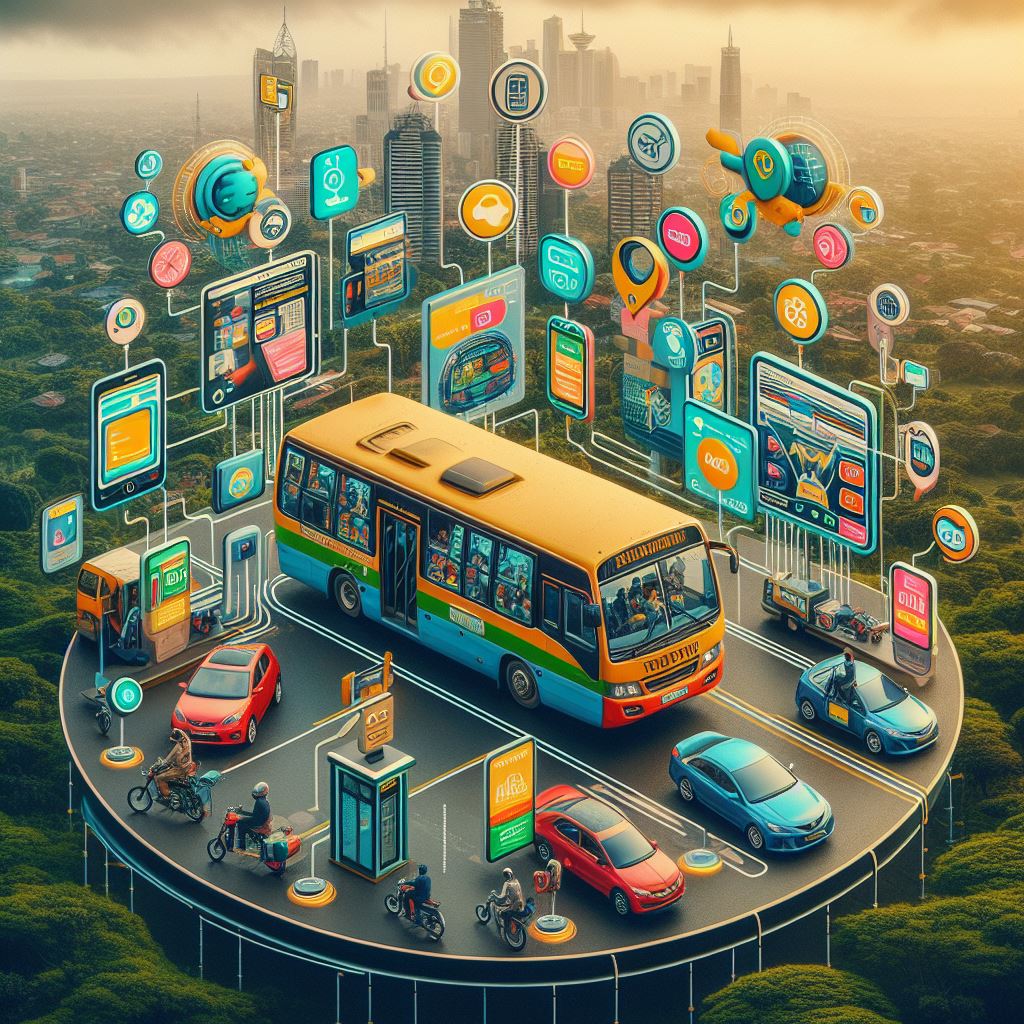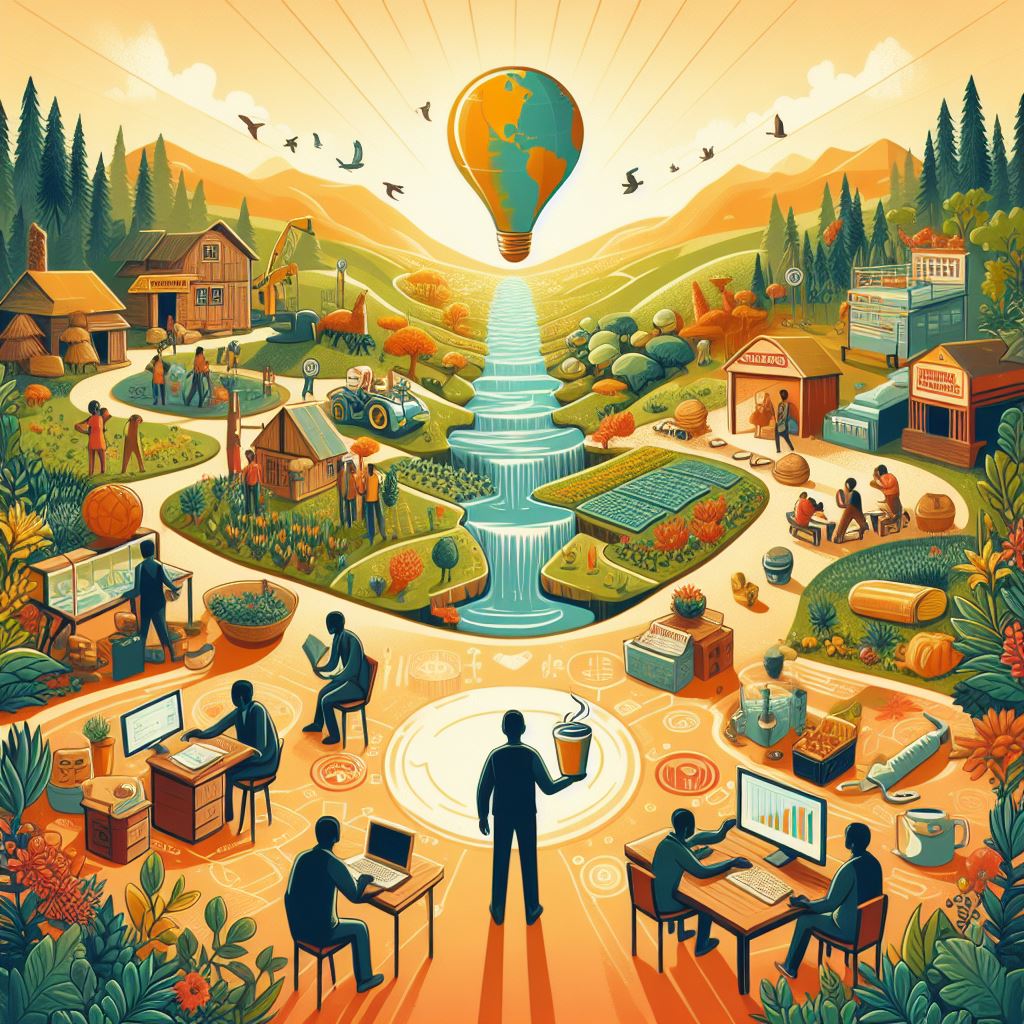Emerging technologies converge, sparking a new industrial revolution that promises to transform businesses, jobs, and society. Experts analyze implications and preparations.
Introduction:
In the annals of human history, few events have shaped our world on such a grand scale as the Industrial Revolution. That period of rapid technological progress from steam engines to mass production completely changed the way we live, work and interact with the environment and now when we are facing a new era , industry experts are buzzing with excitement about the so-called “next technological revolution” This is not just another incremental step forward; It’s a paradigm shift that promises to redefine the fabric of our society and economy
But what exactly is driving this radical change? How will it affect our daily lives and global business environment? And perhaps most importantly, are we prepared for the challenges and opportunities this will present? In this article, we’ll explore the dynamics behind this new technological revolution, examine its potential implications and explore why experts believe it has the potential to be transformative.
But what exactly is driving this radical change? How will it affect our daily lives and global business environment? And perhaps most importantly, are we prepared for the challenges and opportunities this will present? In this article, we’ll explore the dynamics behind this new technological revolution, examine its potential implications and explore why experts believe it has the potential to be transformative.
What are the key technologies driving this revolution?
At the heart of this new industrial revolution lies a convergence of cutting-edge technologies that are rapidly maturing and intersecting in ways that amplify their impact. These include:
1. Artificial Intelligence (AI) and Machine Learning: AI is becoming increasingly sophisticated, capable of handling complex tasks and making decisions that were once the exclusive domain of humans. From predictive maintenance in factories to personalized customer experiences, AI is revolutionizing how businesses operate.
2. Internet of Things (IoT): The proliferation of connected devices is creating a vast network of sensors and data points, enabling unprecedented levels of monitoring, control, and optimization across industries.
3. Advanced Robotics: The next generation of robots are more flexible, collaborative, and capable than ever before, able to work alongside humans in a wide range of environments.
4. 3D Printing and Additive Manufacturing: These technologies are transforming production processes, enabling rapid prototyping, customization, and on-demand manufacturing.
5. Blockchain and Distributed Ledger Technologies: These innovations are reshaping supply chains, financial transactions, and trust mechanisms in business.
6. 5G and Advanced Connectivity: The rollout of 5G networks is enabling faster, more reliable communication, paving the way for real-time control of remote operations and new mobile applications.
7. Quantum Computing: While still in its early stages, quantum computing has the potential to solve complex problems that are currently intractable, with implications for everything from drug discovery to financial modeling.
How will these technologies reshape industries?
The integration of these technologies is leading to fundamental changes across virtually every sector:
Manufacturing: Smart factories will become the norm, with AI-driven optimization, collaborative robots, and predictive maintenance reducing downtime and increasing efficiency. 3D printing will enable mass customization and localized production.
Healthcare: Precision medicine, AI-assisted diagnostics, and robotic surgery will revolutionize patient care. IoT devices will enable continuous health monitoring and early intervention.
Agriculture: Precision farming techniques, autonomous machinery, and AI-driven crop management will boost yields while reducing environmental impact.
Energy: Smart grids, advanced renewable technologies, and AI-optimized energy distribution will accelerate the transition to sustainable energy systems.
Transportation: Autonomous vehicles, smart traffic management, and new modes of transportation like hyperloops will transform how we move people and goods.
Finance: Blockchain, AI-driven risk assessment, and automated trading algorithms will reshape financial services, potentially democratizing access to capital.
Why is this revolution different from previous technological advancements?
Several factors distinguish this new industrial revolution from earlier periods of technological change:
1. Speed of Change: The pace of innovation and adoption is unprecedented, with new technologies reaching market saturation in years rather than decades.
2. Convergence: The synergies between different technologies are creating exponential rather than linear progress.
3. Scope: Unlike previous revolutions that primarily affected specific industries, this one is transforming every sector of the economy simultaneously.
4. Intelligence: The incorporation of AI and machine learning means that systems can now learn, adapt, and improve autonomously.
5. Democratization: Many of these technologies are becoming increasingly accessible to smaller businesses and individuals, potentially leveling the playing field.
What are the potential economic impacts of this revolution?
The economic implications of this new industrial revolution are vast:
1. Productivity Gains: Automation, AI, and optimization technologies could lead to significant increases in productivity across industries.
2. New Business Models: Technologies like blockchain and IoT are enabling new ways of creating and capturing value.
3. Job Market Transformation: While some jobs may be automated, new roles will emerge, particularly in areas related to technology development and management.
4. Economic Shifts: Countries and companies that lead in adopting and developing these technologies may gain significant competitive advantages.
5. Market Disruption: Established industries may face challenges from new, technology-driven competitors.
How will this revolution affect the workforce?
The impact on the workforce is likely to be profound:
1. Skill Requirements: There will be an increased demand for tech-savvy workers and those with skills in areas like data analysis, AI development, and cybersecurity.
2. Continuous Learning: The rapid pace of change will necessitate ongoing education and skill development throughout workers' careers.
3. Human-Machine Collaboration: Many roles will involve working alongside AI systems and robots, requiring new forms of teamwork and interaction.
4. Remote Work: Advanced connectivity will make remote and distributed work more feasible for a wider range of jobs.
5. Gig Economy Growth: Technology platforms may facilitate the further expansion of freelance and contract work.
What are the societal implications of this revolution?
Beyond the economic sphere, this new industrial revolution will have far-reaching societal impacts:
1. Education: Educational systems will need to adapt to prepare students for a rapidly changing job market and to foster critical thinking and creativity.
2. Privacy and Security: The proliferation of connected devices and data collection raises important questions about privacy rights and cybersecurity.
3. Inequality: There's potential for technology to either exacerbate or help address economic inequalities, depending on how it's implemented and regulated.
4. Urban Planning: Smart cities and new transportation technologies could reshape urban landscapes and living patterns.
5. Environmental Sustainability: While some technologies offer solutions to environmental challenges, the increased resource demands of others could pose new problems.
What challenges must be overcome for this revolution to reach its full potential?
Several significant hurdles stand in the way of realizing the full promise of this new industrial revolution:
1. Infrastructure: Many of these technologies require robust digital infrastructure, including high-speed internet and 5G networks.
2. Regulation: Policymakers must strike a balance between fostering innovation and protecting public interests in areas like data privacy and AI ethics.
3. Cybersecurity: As more critical systems become connected, ensuring their security becomes paramount.
4. Skills Gap: There's a growing shortage of workers with the technical skills needed to develop and manage these new technologies.
5. Investment: The capital requirements for developing and implementing these technologies can be substantial, potentially leaving smaller players behind.
6. Public Trust: Gaining public acceptance and trust, particularly for technologies like AI and autonomous systems, will be crucial.
How can businesses and individuals prepare for this revolution?
To thrive in this new era, both organizations and individuals need to take proactive steps:
For Businesses:
1. Embrace Digital Transformation: Companies should assess how new technologies can improve their operations and create new value propositions.
2. Foster a Culture of Innovation: Encourage experimentation and continuous learning within the organization.
3. Invest in Talent: Develop strategies to attract, retain, and upskill workers with the necessary technical and creative abilities.
4. Collaborate: Form partnerships with tech companies, startups, and research institutions to stay at the forefront of innovation.
2. Foster a Culture of Innovation: Encourage experimentation and continuous learning within the organization.
3. Invest in Talent: Develop strategies to attract, retain, and upskill workers with the necessary technical and creative abilities.
4. Collaborate: Form partnerships with tech companies, startups, and research institutions to stay at the forefront of innovation.
For Individuals:
1. Cultivate Adaptability: Develop a mindset of lifelong learning and adaptability to navigate changing job markets.
2. Focus on Human Skills: While technical skills are important, uniquely human capabilities like creativity, emotional intelligence, and complex problem-solving will remain valuable.
3. Stay Informed: Keep abreast of technological developments and their potential impacts on your industry and job role.
4. Embrace Technology: Familiarize yourself with new tools and platforms to enhance your productivity and relevance in the workplace.
2. Focus on Human Skills: While technical skills are important, uniquely human capabilities like creativity, emotional intelligence, and complex problem-solving will remain valuable.
3. Stay Informed: Keep abreast of technological developments and their potential impacts on your industry and job role.
4. Embrace Technology: Familiarize yourself with new tools and platforms to enhance your productivity and relevance in the workplace.
Conclusion:
The "Next Industrial Revolution" is not a distant future scenario; it's unfolding right now, reshaping industries, economies, and societies at an unprecedented pace. The convergence of technologies like AI, IoT, advanced robotics, and others is creating a world of new possibilities and challenges. For businesses, it offers the potential for dramatic improvements in efficiency, innovation, and value creation. For individuals, it presents both opportunities for empowerment and the need for continuous adaptation.
As with any revolution, there will be winners and losers. The key to thriving in this new era will be the ability to anticipate change, adapt quickly, and harness the power of these new technologies while addressing the ethical and societal challenges they present. Governments, businesses, and individuals all have crucial roles to play in shaping this revolution to ensure it benefits society as a whole.
While the path forward may not always be clear, one thing is certain: we are standing at the threshold of a transformative period in human history. By understanding the forces at play and proactively preparing for the changes ahead, we can work towards a future where the benefits of this new industrial revolution are widely shared, creating a more prosperous, sustainable, and equitable world for all.


.jpeg?locale=sheng)























